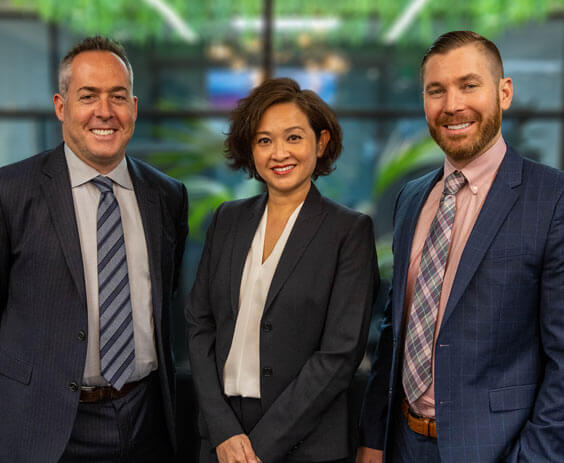When is a car totaled after an accident depends on your insurance company’s evaluation of repair costs versus actual cash value, and understanding this process is critical to protecting your financial recovery. Car accidents are stressful enough without the added headache of hearing the words: “Your car is totaled.” If you’ve never gone through it before, it can be confusing to know what that actually means and what you’re supposed to do next. A totaled car doesn’t always mean your car is completely wrecked beyond recognition. It just means that fixing it would cost more than it’s worth.
Defining a Total Loss
A car is declared “totaled” by insurance companies when the repair cost surpasses its book value at the time of an accident. Basically, if fixing your car costs more than what it’s actually worth, the insurance company might decide it’s a total loss. This doesn’t always mean the car is undrivable; it just means repairing it isn’t financially smart. The insurance company will look at things like the car’s age, mileage, and condition to figure out its actual cash value (ACV). They’ll then compare that to the estimated repair costs. If the repairs exceed the ACV, or come close to it, they’ll likely declare the car a total loss. This can also happen for non-accident reasons, like flood or fire damage.
So, what happens next? What should you do if your car is totaled? Let’s walk through the process, step by step, in a simple way.
1. Understand What “Totaled” Means
When insurance says your car is “totaled,” it means the cost to fix it is more than what the car is worth. For example, if your car is worth $5,000 and the repairs would cost $6,000, it’s considered a total loss. Insurance companies don’t want to spend more money fixing a car than what they’d pay you if it was gone.
Sometimes, even if the repair cost is slightly less than the value, they’ll still call it totaled because of things like rental costs, delays, or possible hidden damage.
2. Make Sure Everyone Is Okay
Before even thinking about the car, the most important thing is your safety and the safety of others involved. After the accident, check for injuries and call emergency services if needed. Cars can be replaced. People can’t.
Once everyone is safe and the immediate emergency is under control, then you can begin thinking about the vehicle.
3. Get a Copy of the Police Report
If the police came to the scene, there should be a report. This can be important later, especially if you’re dealing with insurance or trying to figure out who was at fault. Even if it seems like a minor detail now, having that report in your hands can save you a lot of trouble.
You can usually get a copy by calling the local police department or going online. Sometimes they charge a small fee.
4. Call Your Insurance Company
The sooner you let your insurance company know, the better. Give them the details of the accident and tell them where your car is located (especially if it was towed).
They’ll assign someone, usually called an adjuster, to look at the car and decide whether it’s totaled. If it is, they’ll calculate how much it was worth before the accident. This is the amount they may offer you.
Try to be honest and clear when you talk to them. If you’re not sure about something, it’s okay to say so. Guessing or leaving out information can slow things down or cause problems later.
5. Find Out What Your Car Is Worth
Don’t just take the insurance company’s word for it. Do your own research to find out how much your car was really worth before the accident. Use websites like Kelley Blue Book, Edmunds, or even Craigslist to get an idea of what similar cars in your area are selling for.
Look at the same year, make, model, mileage, and condition. If you think the offer from the insurance is too low, you can challenge it. Show them listings of similar vehicles and explain why you think your car was worth more.
Sometimes, they’ll negotiate with you. It never hurts to ask.
6. Take Personal Belongings Out of the Car
Before your car gets taken away (or sold as salvage), make sure to remove all your personal stuff. This includes obvious things like bags, sunglasses, and phone chargers, but also look in the trunk, glove box, and under the seats.
Don’t forget documents, like your registration or insurance card, and any garage openers or spare change you might have stashed.
Once the car is gone, it might be very difficult—or even impossible—to get those things back.
If you’re feeling overwhelmed after an accident, our Newport Beach personal injury attorneys at Kohan & Bablove Injury Attorneys are here to help.
7. Decide Whether to Accept the Settlement or Not
When your car is totaled, your insurance company will usually offer you a check. This is meant to cover the value of your car before the accident, minus any deductible you might owe.
You have a few choices at this point:
- Accept the payment: They’ll take the car, and you’ll get the money.
- Keep the car (if allowed): You might be able to keep the car, especially if it still runs. In this case, the insurance company will subtract the salvage value (what they think they could get for it) from your settlement.
- Dispute the offer: If you think the value is unfair, you can push back. But make sure you have proof.
Whatever you decide, don’t rush. Take time to understand what you’re agreeing to.
8. Handle the Loan (If You Still Owe Money)
If you’re still paying off your car loan and your car gets totaled, things can get tricky. If the insurance settlement is less than what you still owe on the car, you’re stuck with the rest of the loan.
For example, if you owe $12,000 but the car is worth $9,000, you’ll still have to pay $3,000 out of pocket.
This is where gap insurance comes in, if you had it. Gap insurance covers that difference. If you didn’t have it, you’ll have to find a way to pay the rest.
9. Think About Your Next Steps
Once everything is sorted, it’s time to figure out what you’ll do next. Are you buying a new car? Getting a used one? Taking a break from driving for a bit?
Use the insurance money as your starting point. If you need more funds, you may have to look at financing or buying something more affordable until you’re back on your feet.
Take your time. The pressure to replace your car right away can be overwhelming, but a rushed decision might lead to regret later.
10. Learn from the Experience
No one wants to be in an accident, and having your car totaled can feel like insult added to injury. But it’s also a good time to reflect and learn.
- Do you need better insurance coverage?
- Should you consider gap insurance next time?
- Would having an emergency kit or dashcam have helped?
Even if the accident wasn’t your fault, thinking about what you could do differently next time can help you feel more in control moving forward.
When Is a Car Totaled After an Accident?
Many drivers ask, when is a car totaled following a serious crash. Insurance companies determine when is a car totaled by comparing the repair costs to the vehicle’s actual cash value. If the repairs exceed a certain percentage of the car’s value, the insurer will declare it a total loss. Understanding when is a car totaled is important because it directly affects how much compensation you receive. If you disagree with the insurance company’s decision about when is a car totaled, you may have the right to challenge their valuation and negotiate for a higher payout.
Need Help After a Car Accident? Call Us Now
If your car was totaled and you’re dealing with injuries or insurance headaches, you don’t have to go through it alone. Our car accident lawyer in Newport Beach helps people in Newport Beach to get the support and compensation they deserve after serious accidents. We’ll fight to protect your rights and make sure you’re treated fairly. Contact us today for a free consultation and let us help you get back on track.

Kohan & Bablove Injury Attorneys was founded by three former defense attorneys who were tired of helping insurance companies and big corporations save money by paying the least amount possible to resolve claims. We wanted to open a law firm where we could use our years of experience handling the toughest and largest claims to benefit the individual. Each of us were tired of being cogs in the wheel that focused on paying the least amount possible to injured persons regardless of injuries or the validity of their claims.


